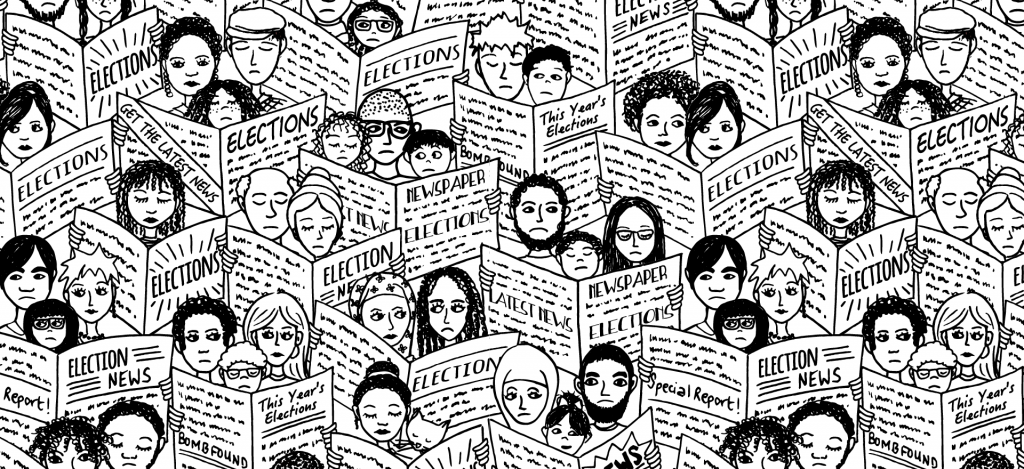By Giselle Varre, Communication Assistant Intern | Office of Communication, Education, & Outreach
The 2023 Indiana Civic Health Index, released in January 2024, sounded the alarm for the urgent need to revitalize Hoosiers’ participation in the upcoming 2024 presidential elections. The report carefully dissects Indiana’s civic health, highlighting areas for improvement and offering a strategic roadmap for proper civic engagement. The primary area of concern is the persistent challenge of poor voter turnout, a trend that has plagued the state for many years.
Between 2016 and 2020, Indiana witnessed a decline in its voter turnout national rank, dropping from 41st to 46th. This decline is part of a broader trend, as Indiana’s voter participation—once above the national average in the 1970s—has steadily decreased since the early 2000s. Despite a 57% increase from 2016 to 2020, Indiana still lags well behind the national average, prompting a critical examination of the factors contributing to this decline.

The report theorizes Indiana’s below-average voter turnout may be due to factors such as the absence of contested elections and specific election policy choices. The 2022 midterm elections further highlighted these challenges, with Indiana measuring 2.6% below the national average in voter registration and more than 10% below in voter turnout.
Factors contributing to this data include pandemic recovery, economic conditions, and the prevailing social and political climate. The INCHI emphasizes the need for policy changes, pointing to successful initiatives in other states such as automatic voter registration, same-day voter registration, unrestricted absentee voting, and extended election-day voting hours.
Indiana is confronted with unique challenges… as it lags behind other states in youth registration.
Without policy changes like these, it is uncertain whether the 2024 election contests will generate sufficient interest among Hoosier voters to match or surpass the national average. The INCHI proposes a comprehensive effort in 2024 to register every eligible Hoosier, with a particular emphasis on the youth vote.
Components of the proposal include forming the Community-Engaged Alliance, which will supplement student-led initiatives to promote voter registration. The Big Ten Voting Challenge adds a competitive element, fostering rivalry between universities like IU and Purdue, as well as encouraging participation among the other 12 institutions.
Indiana is confronted with unique challenges, however, as it lags behind other states in youth registration. A significant portion of the younger generation has been disenfranchised, contributing to the problematic perception that “my vote doesn’t matter.” This perception is not unfounded, as a national poll of non-voters revealed that two-thirds agreed with the sentiment that their votes have little impact.
The 2023 Indiana Civic Health Index serves as a crucial call to action. It provides a roadmap for addressing the decline in voter participation, emphasizing the need for policy changes, community engagement, and targeted efforts to register and inspire young Hoosiers to become active participants in the democratic process. The 2024 elections present an opportunity for Indiana to reverse its declining civic health.